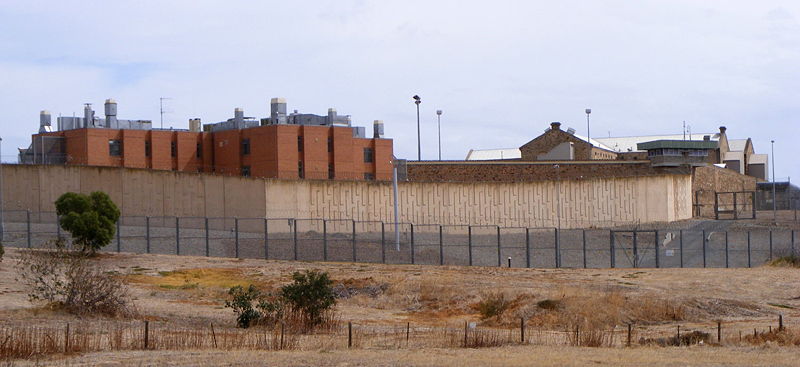
Nationwide, the known infection rate for Covid-19 in jails and prisons is about 2½ times higher than in the general population...
Seven of the 10 largest outbreaks in the country have been at correctional facilities...
Seventy percent of Texas prisoners tested have the coronavirus...But testing has been limited to only 1,700 people—about 1% of the state’s prison population.
Many of these prisoners will die, as will thousands of other incarcerated people in the U.S. because of mass incarceration and our carceral policies. The pandemic has exposed serious problems with American incarceration that need to be addressed.
וְכֵן בְּסֻכּוֹת הוּא אוֹמֵר אֶת יוֹם טוֹב מִקְרָא קֹדֶשׁ הַזֶּה יוֹם חַג הַסֻּכּוֹת הַזֶּה זְמַן שִׂמְחָתֵנוּ בְּאַהֲבָה וְכוּ׳...
And so too, on Sukkot, in the additional prayers [Mussaf], one says, "on this holy day, the holiday of Sukkot, the time of our joy, [God has given] with love, etc..."
Rava said that the halakha is derived from here: “In sukkot shall you reside seven days” (Leviticus 23:42). The Torah said: For the entire seven days, emerge from the permanent residence and reside in a temporary residence. In constructing a sukka up to twenty cubits high, a person can render their residence a temporary residence, however, in constructing a sukka above twenty cubits high, one cannot render their residence a temporary residence; rather, they must construct a sturdy permanent residence, which is unfit for use as a sukka.
- What are the connections between feelings of joy and being in a permanent residence? In what circumstances might one feel joy while being in an uncertain or temporary space?
- What makes a dwelling feel temporary vs. permanent?
- In what structural and experiential ways are prisons temporary dwellings that are made to feel permanent?

This image was created by Peripitus and is under a CC BY-SA 3.0 license.
תִּיבוּ תִּיבוּ אוּשְׁפִּיזִין עִילָאִין, תִּיבוּ תִּיבוּ אוּשְׁפִּיזִין קַדִּישִׁין...
Sit, sit, honored guests; sit, sit, holy guests....
- How is the practice of Ushpizin meant to increase joy on Sukkot?
- Who feels joyful through this practice and why?
What is the source for the requirement of: “This is my God and I will glorify Him”? As it was taught in a baraita with regard to the verse: “This is my God and I will glorify Him [anveihu]”... The Sages interpreted anveihu homiletically as linguistically related to noi, beauty, and interpreted the verse: Beautify yourself before Him in mitzvot. Make before God a beautiful sukka, a beautiful lulav, a beautiful shofar, beautiful ritual fringes, beautiful Torah scroll...
- How does the concept of hiddur mitzvah (beautifying the mitzvah) enhance joy on Sukkot?
- How do you experience a holiday differently when you are in an undecorated or impersonal place versus when you are in a more intentionally decorated space?

...וכשהוא אוכל ושותה חייב להאכיל לגר ליתום ולאלמנה עם שאר העניים האמללים. אבל מי שנועל דלתות חצרו ואוכל ושותה הוא ובניו ואשתו ואינו מאכיל ומשקה לעניים ולמרי נפש אין זו שמחת מצוה אלא שמחת כריסו...
When one eats and drinks, one must feed the stranger, the orphan, and the widow, along with the rest of the poor who are in need. But one who locks the gate of their courtyard and eats and drinks with their family and doesn't provide food and drinks for the poor and for those who are despondent, this is not the joy of a mitzvah, but rather just the joy of a full belly...

Another explanation: "The fruit of a beautiful tree" - these are [referring to] Israel. Just like this citron (etrog), which has taste and has smell, so too Israel has among them people that have Torah and have good deeds. "The branches of a date palm" - these are [referring to] Israel. Just like this date, which has taste and has no smell, so too Israel has among them those that have Torah but do not have good deeds. "And a branch of a braided tree (a myrtle)" - these are [referring to] Israel. Just like this myrtle, which has smell and has no taste, so too Israel has among them those that have good deeds but do not have Torah. "And brook willows" - these are [referring to] Israel. Just like this willow, which has no smell and has no taste, so too Israel has among them people that have no Torah and have no good deeds. And what does the Holy One, blessed be He, do to them? To destroy them is impossible, but rather the Holy One, blessed be He, said "bind them all together [into] one grouping and these will atone for those." And if you will have done that, I will be elevated at that time. This is [the meaning of] what is written (Amos 9:6), "He Who built the upper chambers in the heavens" (indicating his elevation). And when is He elevated? When they make one grouping, as it is stated (Ibid.), "and established His grouping on the earth." Hence Moshe warned Israel, "And you shall take for yourselves on the first day."
- In the absence of certain individuals within our communities and societies, and when many cannot join us even if they wanted to, how can we nevertheless help them feel welcome and seen?
- If the individuals are us, how would or do we want to feel acknowledged and as a part of the Jewish collective?




